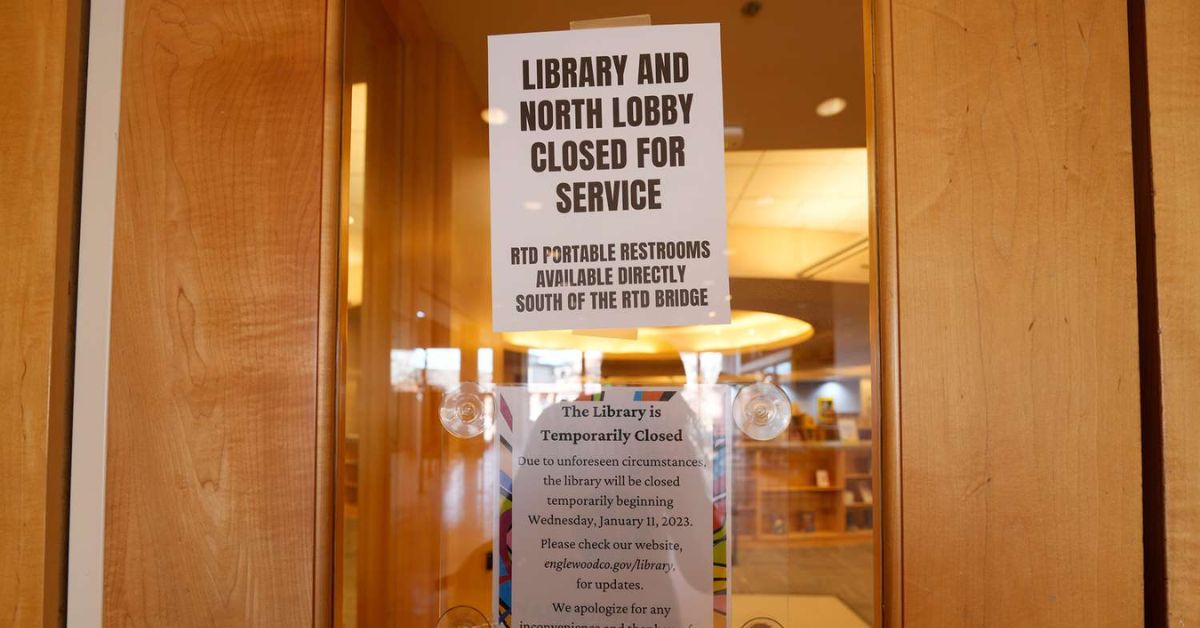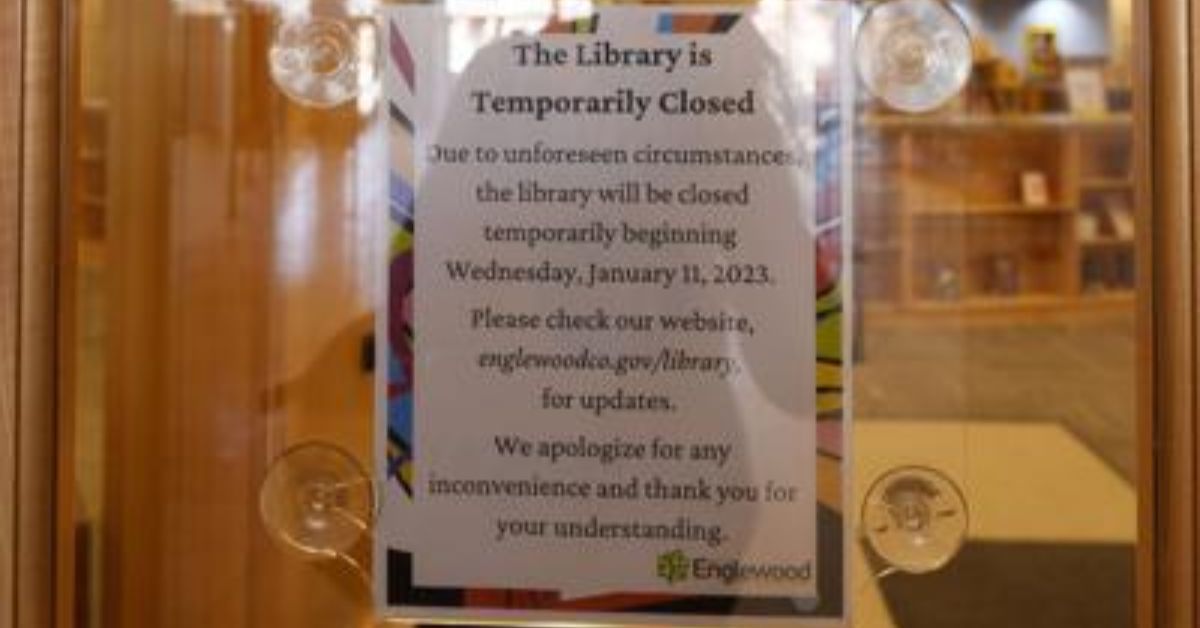A library in Colorado has been forced to close its doors for the second time in a month so that cleaning crews can remove methamphetamine contamination.
After receiving test results on Wednesday showing that the contamination in the facility’s restrooms exceeded state thresholds, officials in the Denver suburb of Englewood shut down the city library within a couple of hours of receiving those results, according to Chris Harguth, a spokesman for the city. The library was closed last week.
Other areas, such as countertops, also tested positive for the drug at lower concentrations and will need to be cleaned in a particular manner, according to what he stated. Contaminated surfaces, walls, ductwork, and exhaust fan equipment will be removed during the larger-scale remediation process.
According to Harguth, the city of roughly 33,000 people located just south of Denver made the decision to conduct the test after officials in the nearby college town of Boulder opted to close their main library due to the discovery of meth contamination.
It is the most recent illustration of the delicate balancing act that must be performed by metropolitan libraries in order to ensure that their spaces are welcoming to all patrons while also being kept clean and secure. During the middle of the 2010s, as the opioid crisis continued to spread across the United States, it was reported that a spate of overdoses had occurred in libraries. In response, some libraries acquired the antidote naloxone, which is marketed under the brand name Narcan.
According to a spokesman for the American Library Association named, Raymond Garcia, it appears that the closures of libraries caused by methamphetamine contamination are currently confined to the state of Colorado. The American Library Association is unaware of any closures occurring in other parts of the country in the past few years. The organization chose not to comment on whether or not there has been an increase in the usage of drugs in libraries, citing a lack of recent statistics as their reason.
Meth residue, according to those in charge of public health, has the potential to be an irritant, resulting in symptoms such as a scratchy throat, a runny nose, and bloodshot eyes. According to Harguth, however, it is not considered that secondary exposure can produce long-term or chronic health difficulties.
The director of the Englewood library, Christina Underhill, stated that only a small percentage of patrons use illegal substances. Still, there have been increased reports of drug use in recent months due to the colder weather driving more people to seek shelter in the library.

Since it reopened in its entirety after being closed because of the pandemic, the library has seen a general increase in the number of persons who are without homes. Underhill remarked that the company was “extremely accommodating.” On the other hand, “there are a few people who abuse this area and sadly put us in this position.”
On Thursday, Brenda Folsom was picking up her grandchildren from school near the library in Englewood. She mentioned that over the past two years, she had noticed an increase in the amount of drug use in the area, particularly around her neighborhood park.
She is worried that her three- and eight-year-old grandsons, who go to the library with their father and other children who are naturally interested, may pick up needles and other drug paraphernalia in the library’s bathrooms.
Folsom stated, “I think if they would clean their restrooms a little more or paid attention to the restrooms and stuff or the people going in there, they wouldn’t have this problem.” If they did either of those things, they wouldn’t have this problem. Her viewpoint was that the library ought to have increased levels of security as well as more frequent facility inspections.
Officials from Boulder indicated that their city’s library closing a month ago was due to tight state standards for cleaning up meth whenever testing finds it to be there. They also brought up that the criteria for the amount of meth contamination considered acceptable were created with a view toward houses, as opposed to public facilities, where frequent exposure is less likely to occur.
The city of Colorado Springs issued a statement on December 28 claiming that the state’s regulations are “among of the most conservative in the nation, adopting an abundance of caution to safeguard infants and toddlers from exposure.”
Annie Elliott, a representative for the library, said that although the library has already reopened, its restrooms will stay closed. At the same time, decontamination work is completed, including replacing fans and vents. After that has been completed, the restrooms will stay locked, and anyone who needs to use them will be required to inquire with a staff member or security officer to gain entry.
A number of improvements have been made at the Englewood library in order to serve better individuals who are without homes. According to Underhill, every Monday, there is a visit from a community outreach group that provides services such as assistance in obtaining identification, food coupons, and housing.
She stated that the city employed security guards at the library last year after hearing patrons complain that they did not feel comfortable there. In addition to that, it established a code of conduct to assist librarians in their ability to uphold rules.
According to the library’s website, the city of Englewood has raised financing to hire more personnel to discourage the use of drugs. Underhill stated that there had been a shift in how the library is utilized. “An increasing number of people are making their way there to take refuge in the area.”
If you enjoyed reading this post, please share your feedback in the comments below. Also, don’t forget to check back on our website, Journalist PR, for the most recent information on the news.

Leave a Reply